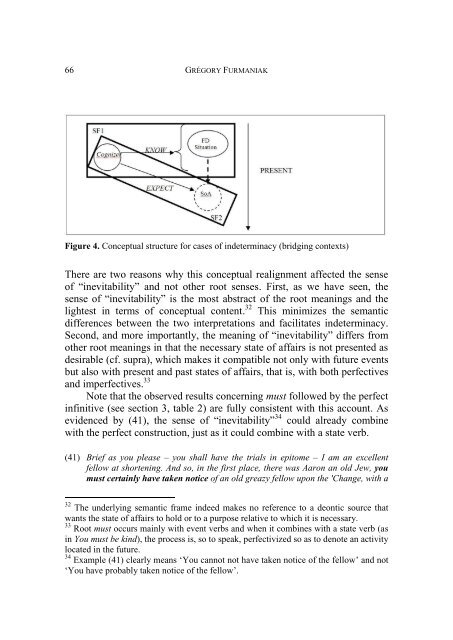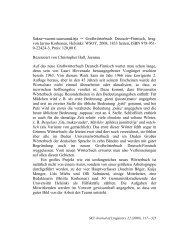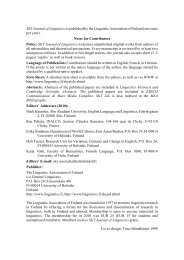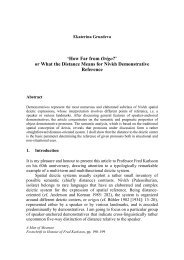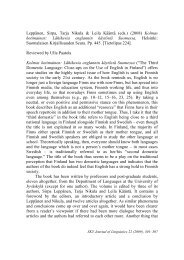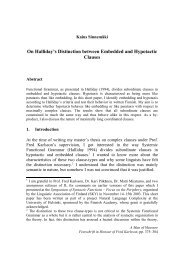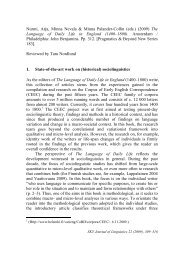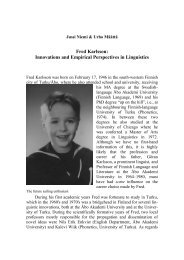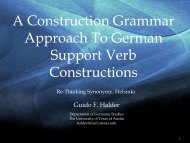SKY Journal of Linguistics 24
SKY Journal of Linguistics 24
SKY Journal of Linguistics 24
You also want an ePaper? Increase the reach of your titles
YUMPU automatically turns print PDFs into web optimized ePapers that Google loves.
66<br />
GRÉGORY FURMANIAK<br />
Figure 4. Conceptual structure for cases <strong>of</strong> indeterminacy (bridging contexts)<br />
There are two reasons why this conceptual realignment affected the sense<br />
<strong>of</strong> ―inevitability‖ and not other root senses. First, as we have seen, the<br />
sense <strong>of</strong> ―inevitability‖ is the most abstract <strong>of</strong> the root meanings and the<br />
lightest in terms <strong>of</strong> conceptual content. 32 This minimizes the semantic<br />
differences between the two interpretations and facilitates indeterminacy.<br />
Second, and more importantly, the meaning <strong>of</strong> ―inevitability‖ differs from<br />
other root meanings in that the necessary state <strong>of</strong> affairs is not presented as<br />
desirable (cf. supra), which makes it compatible not only with future events<br />
but also with present and past states <strong>of</strong> affairs, that is, with both perfectives<br />
and imperfectives. 33<br />
Note that the observed results concerning must followed by the perfect<br />
infinitive (see section 3, table 2) are fully consistent with this account. As<br />
evidenced by (41), the sense <strong>of</strong> ―inevitability‖ 34 could already combine<br />
with the perfect construction, just as it could combine with a state verb.<br />
(41) Brief as you please – you shall have the trials in epitome – I am an excellent<br />
fellow at shortening. And so, in the first place, there was Aaron an old Jew, you<br />
must certainly have taken notice <strong>of</strong> an old greazy fellow upon the 'Change, with a<br />
32 The underlying semantic frame indeed makes no reference to a deontic source that<br />
wants the state <strong>of</strong> affairs to hold or to a purpose relative to which it is necessary.<br />
33 Root must occurs mainly with event verbs and when it combines with a state verb (as<br />
in You must be kind), the process is, so to speak, perfectivized so as to denote an activity<br />
located in the future.<br />
34 Example (41) clearly means ‗You cannot not have taken notice <strong>of</strong> the fellow‘ and not<br />
‗You have probably taken notice <strong>of</strong> the fellow‘.


